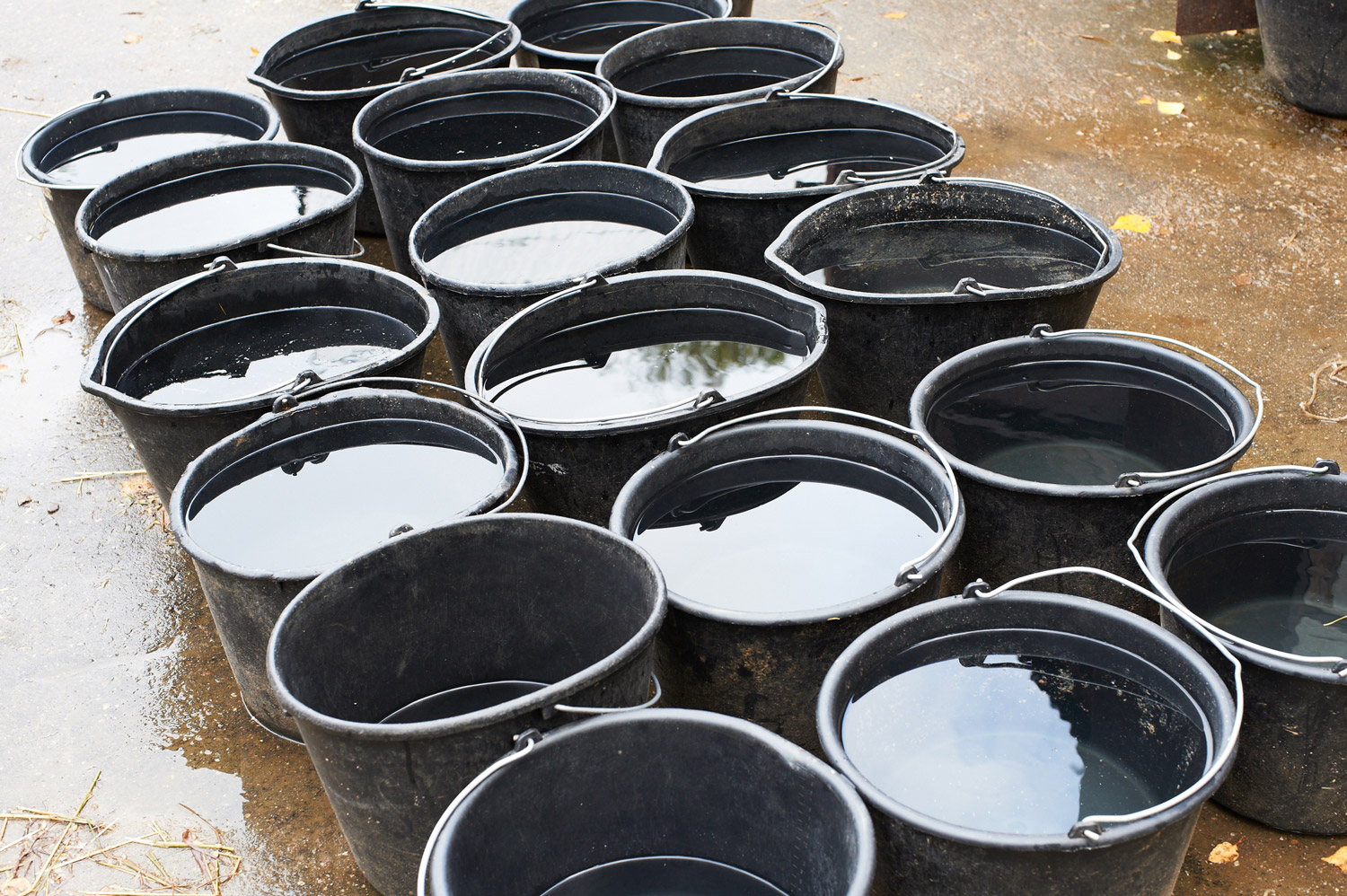
Drinking water is essential for all of life’s functions. When you think about it, all mammals are made up largely of salt and water. Even at rest, a horse needs to drink 2-4 pints of water for every pound of food. An intake of 20 pounds of hay means a horse must drink a minimum of 5-10 gallons of water.
Exercise takes the need for water to a whole new level. In addition to maintenance requirements for basic body functions, an exercising horse needs to replenish water that is lost in sweat. The ability to cool the body during locomotion relies on sufficient blood circulation, which is dependent on a horse’s level of hydration. As one example of water loss during exercise, a distance horse might lose 1-4 gallons of water in just the first 15 miles of trail. Along with this water loss is depletion of as much as 10% of the body’s total stores of electrolytes. Imbalances and loss of fluids and electrolytes have significant impacts on normal function of skin for sweating, muscles for locomotion, and the intestines for digestion.
It’s true that you can lead a horse to water but you can’t make him drink, but here are there some strategies that might stimulate his desire to drink or add extra water to his diet.
- Feed a sloppy mash of well-soaked beet pulp and/or pelleted feed.
- Soak the hay.
- For a horse used to grazing pasture, find an area to graze green grass, which is 50-90% water compared to 5-8% water content of hay. The more dry food your horse eats, the greater his need for water for digestion.
- Figure out what water temperature your horse prefers and offer it at that temperature.
- Some horses prefer to drink from specific buckets, having a differing preference between plastic, rubber or galvanized material.
- Supplement the horse with electrolytes to ensure sufficient sodium and potassium replacement to keep a horse’s thirst drive active. The best time to supplement electrolytes is when your horse takes a good drink.
- Some horses don’t like the taste of strange water, so before travel, accustom your horse to drinking water laced with cider vinegar, for example. At an event away from home, the cider vinegar will disguise a strange taste.
- You also can bring ample water from home and slowly wean him off of that as you lure him into drinking a new water source.
There are many other ways to disguise the flavor of water when you are traveling with your horse, but you should get your horse used to the “flavoring” at home to ensure he will drink on the road.
Always make sure you offer fresh plain water as well as electrolytes in water to give the horse an opportunity to drink if he doesn’t prefer the electrolyte-laced liquid.


